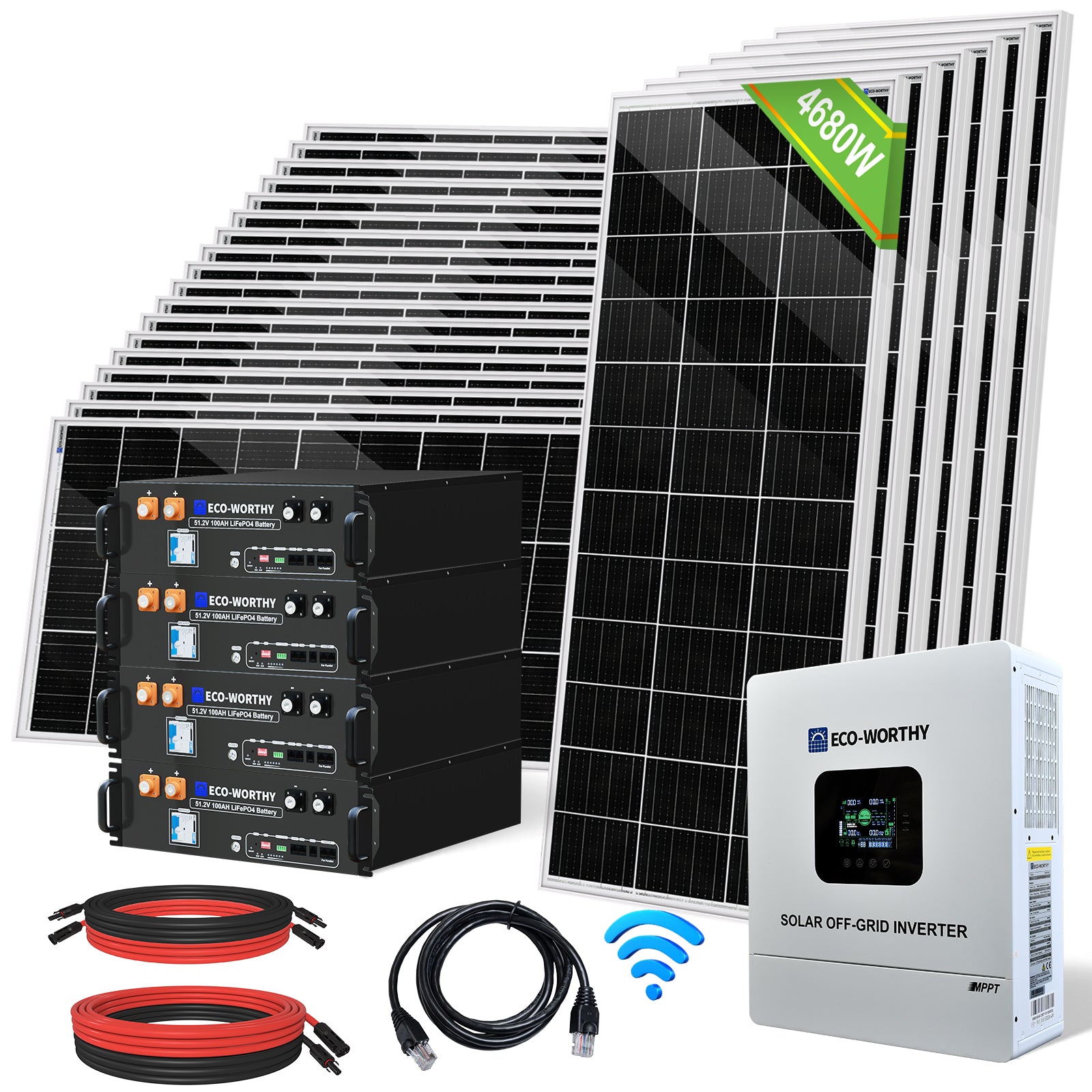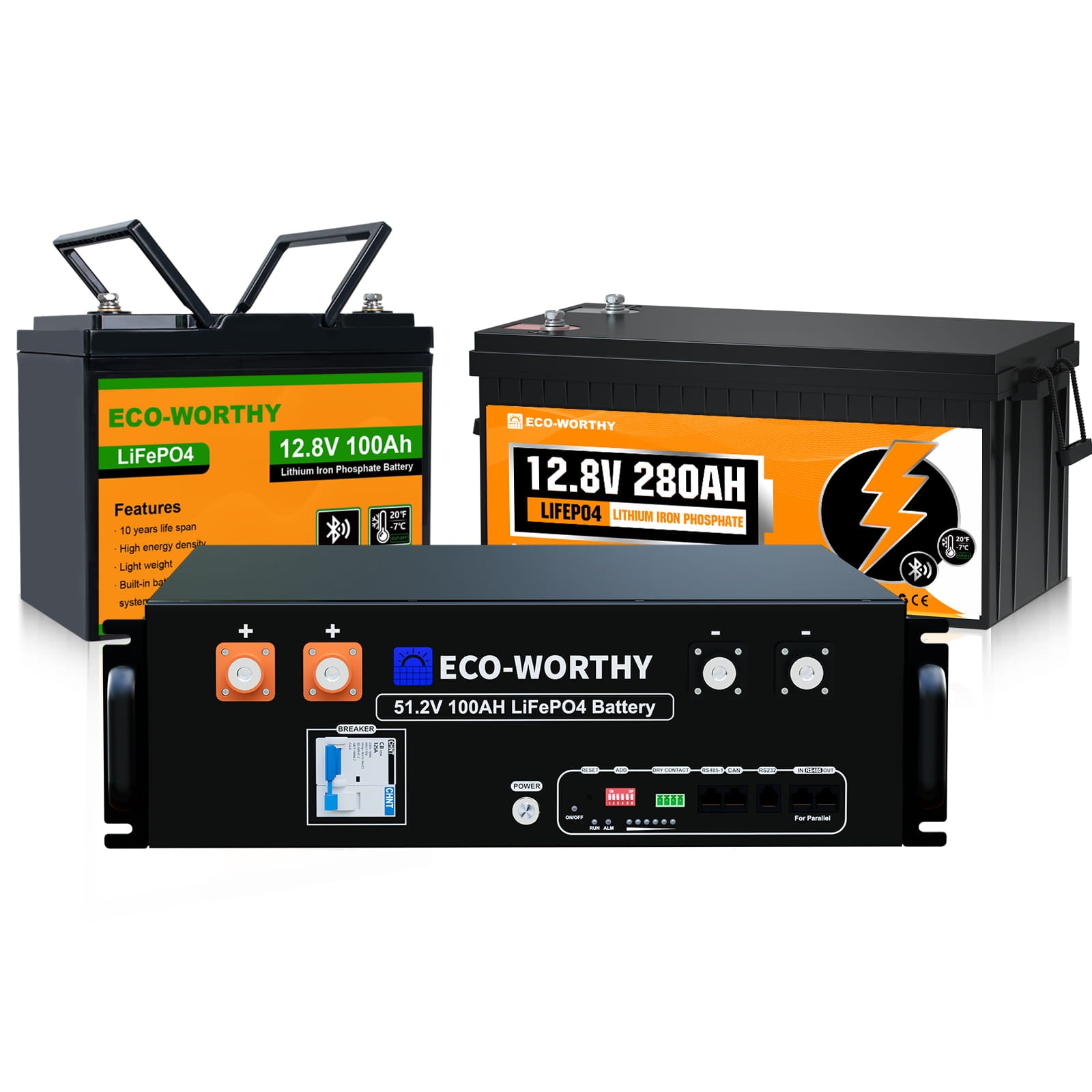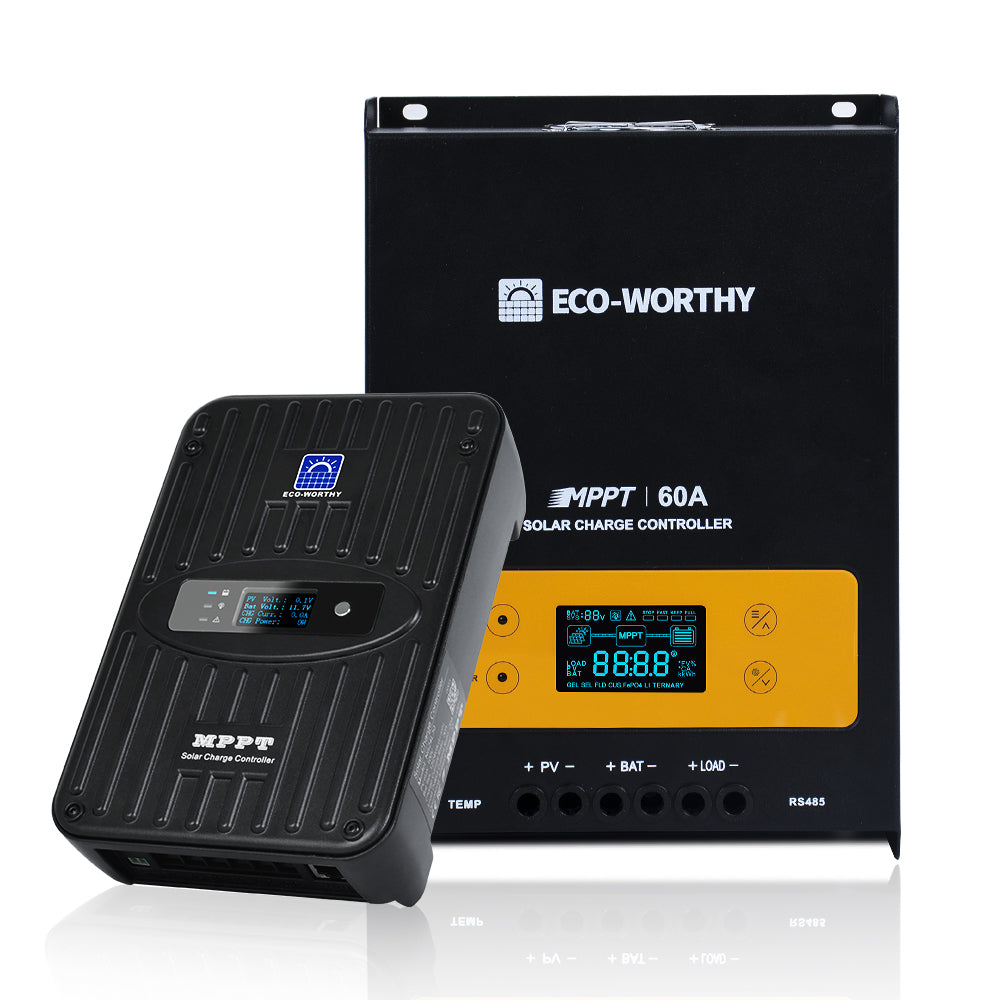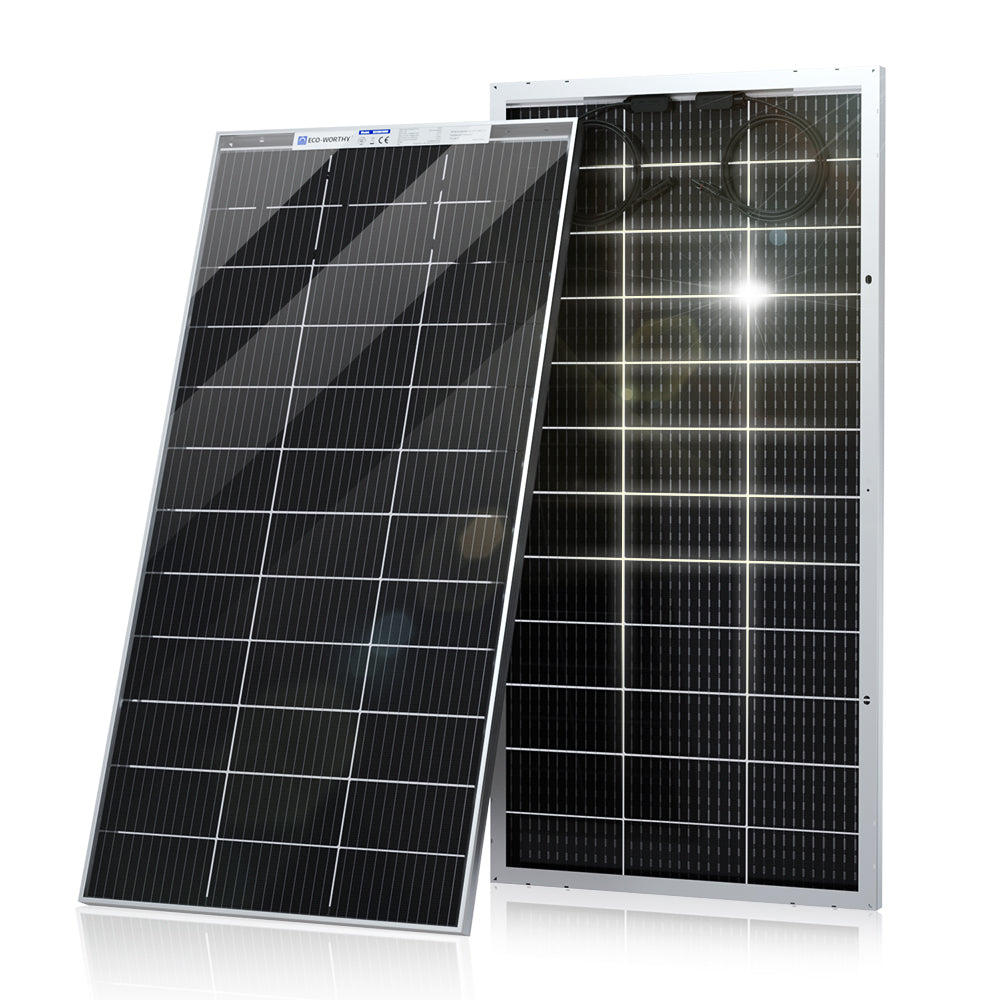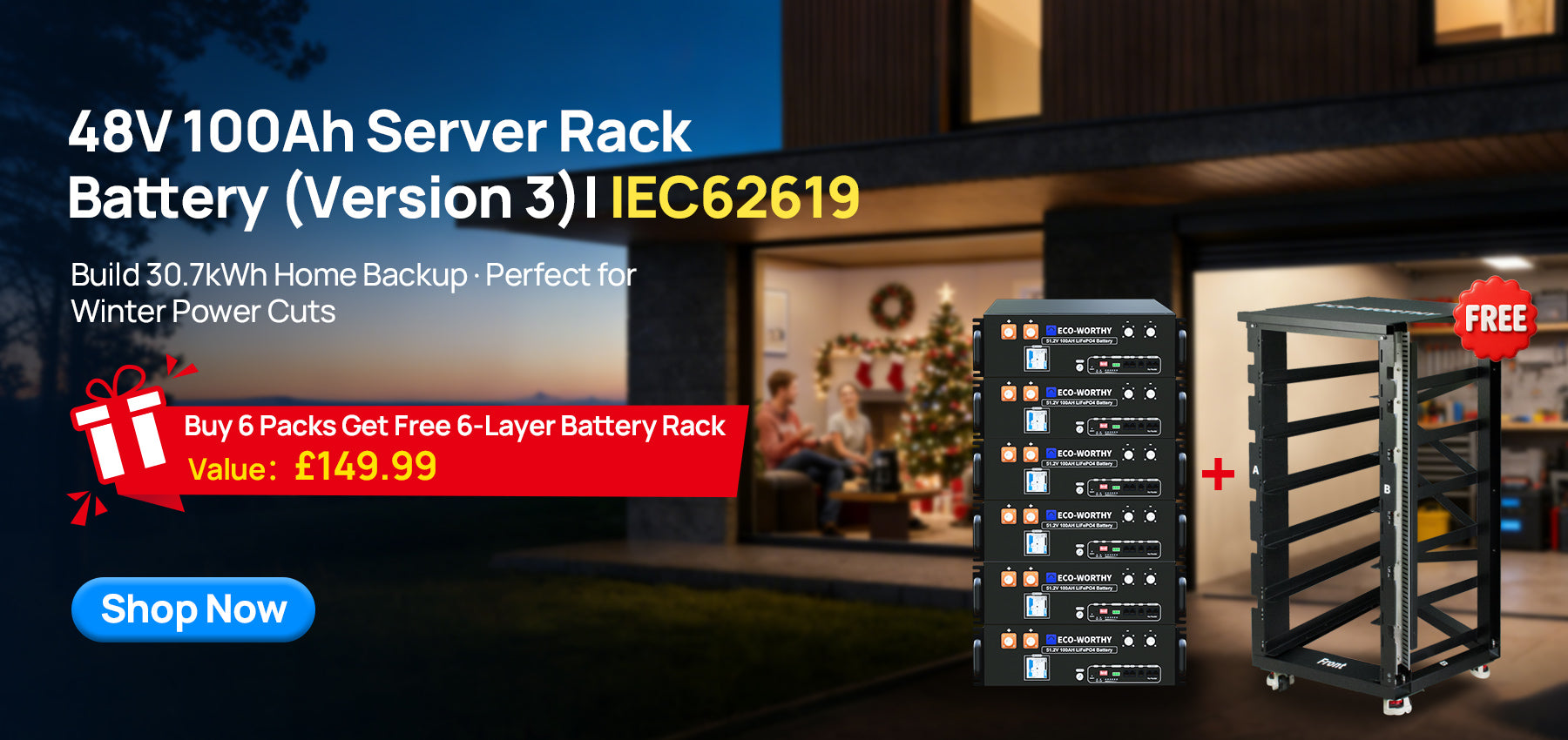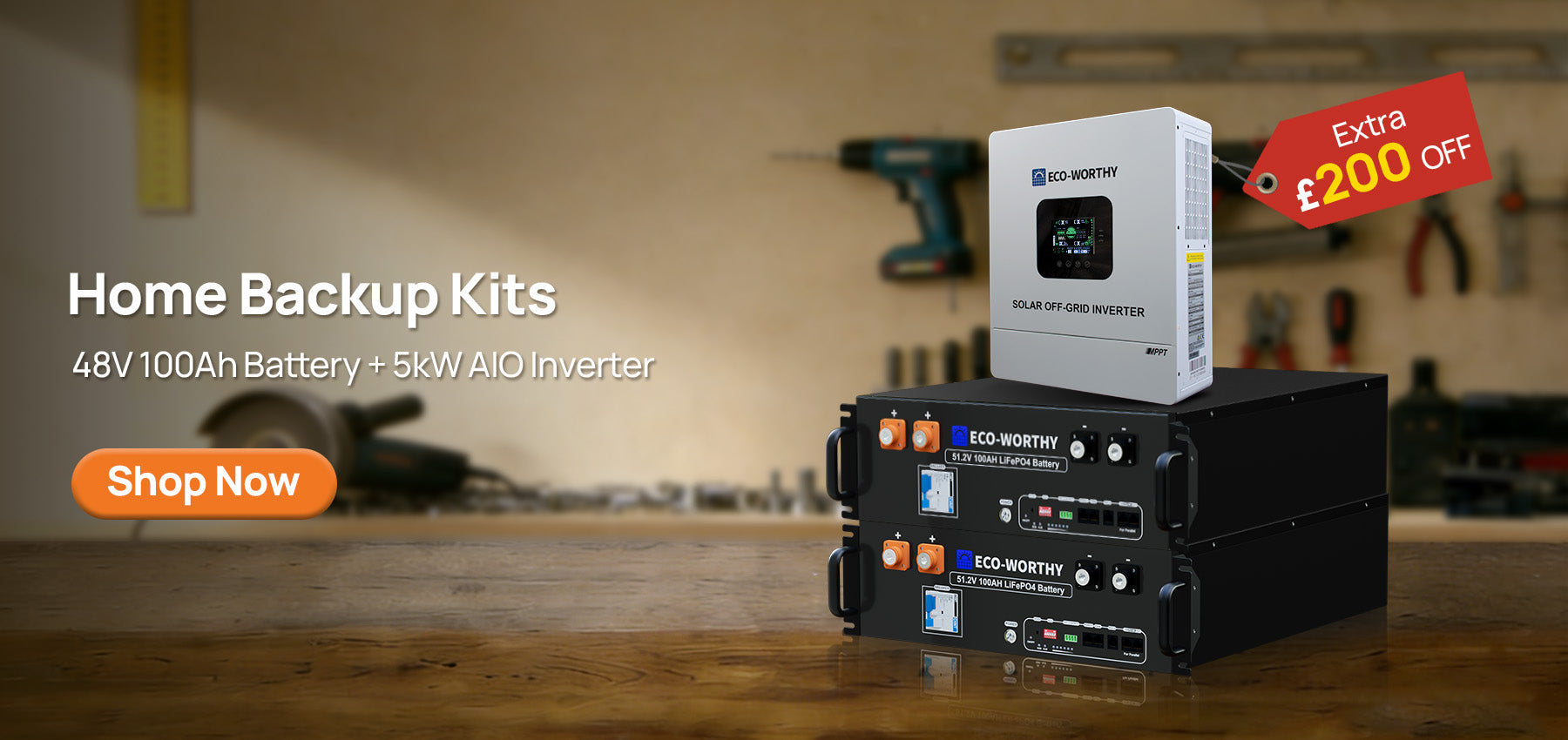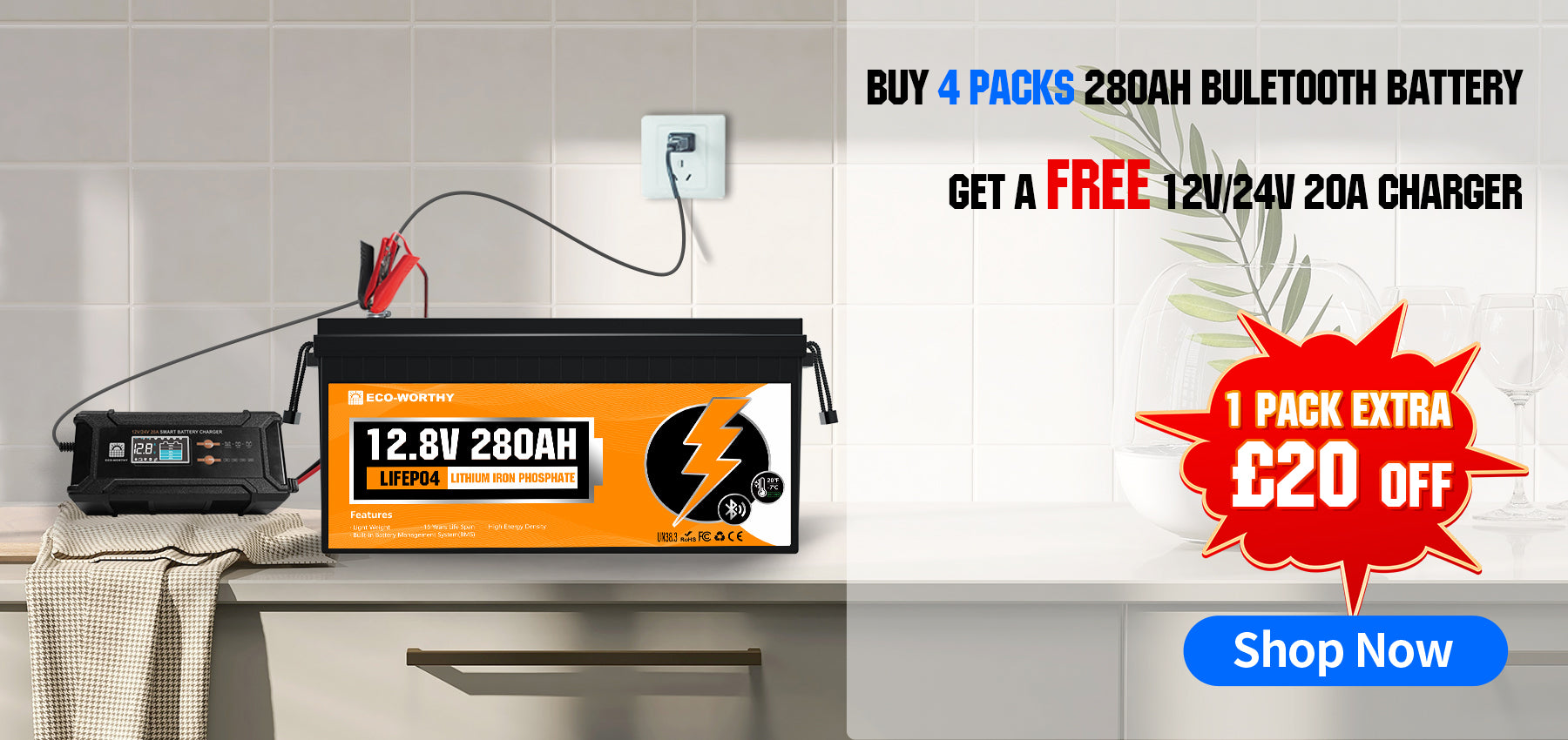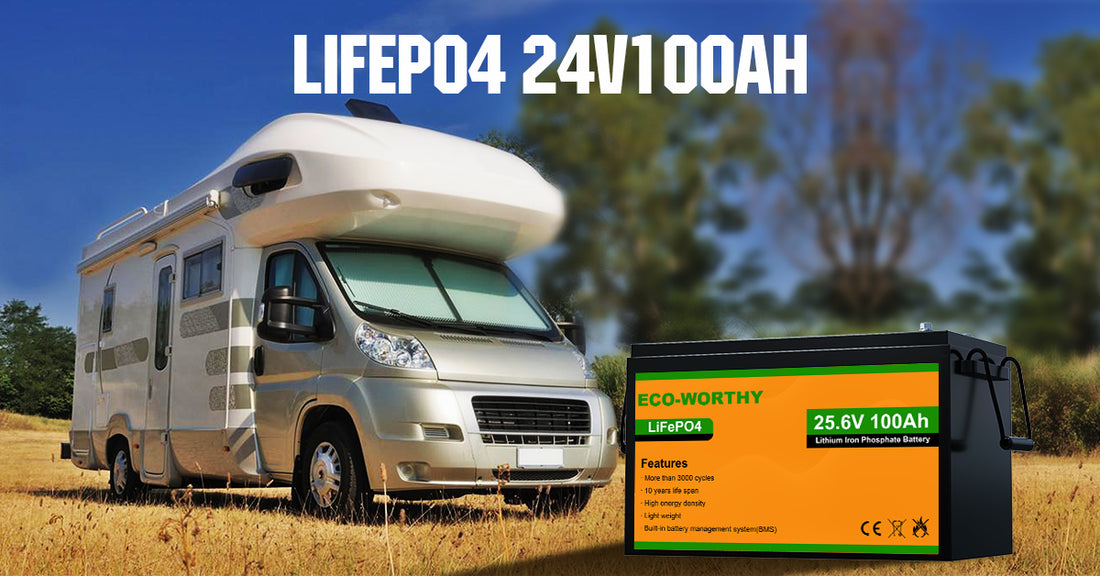Navigation
- What is a Class B RV (Campervan)?
- Typical Power Consumption of Campervan Devices
- How Do I Estimate Power Consumption in My Campervan?
- How Do I Determine the Right Battery Capacity for My RV?
- Power Up Your Campervan Adventures
The right lithium leisure battery size can make all the difference in your campervan adventures. A properly sized power supply ensures you have reliable energy for all your needs, whether you're planning weekend getaways or embracing full-time van life. This post will guide you through the world of Class B RVs (campervans), help you estimate your power requirements, and offer recommendations for lithium battery sizes for your campervan.
What is a Class B RV (Campervan)?
A Class B RV, commonly known as a campervan, is a compact and versatile recreational vehicle built on a van chassis. Unlike larger RVs, campervans are easier to drive and park, making them ideal for travelers who value mobility and convenience.
Typical features in a campervan include:
- Sleeping area (often a convertible bed)
- Small kitchen with a refrigerator, stovetop, and sink
- Bathroom facilities (sometimes a wet bath combining toilet and shower)
- Seating area that may double as a dining space
- Storage compartments for clothes and gear
These amenities require electrical power, which is why choosing the right battery size is crucial. Your battery will need to support:
- Lighting throughout the van
- Refrigeration for food storage
- Charging for personal devices like phones and laptops
- Powering small appliances such as a microwave or coffee maker
- Running a heater or air conditioner (in some models)
- Operating water pumps for the sink and shower
The battery size you choose will directly impact how long you can use these features without needing to recharge or connect to shore power.
Typical Power Consumption of Campervan Devices
|
Device |
Power Consumption (Watts) |
Estimated Daily Use (Hours) |
Daily Energy Consumption (Watt-hours) |
|
LED Light |
3 |
5 |
15 |
|
12V Refrigerator |
40 |
8 (1/3 of the day) |
320 |
|
Water Pump |
60 |
0.25 (15 minutes) |
15 |
|
Roof Vent Fan |
30 |
3 |
90 |
|
Laptop Charger |
60 |
2 |
120 |
|
Smartphone Charger |
5 |
2 |
10 |
|
Microwave (when in use) |
1000 |
0.5 |
500 |
|
Coffee Maker |
600 |
0.25 (15 minutes) |
150 |
|
Air Conditioner (small) |
1000 |
4 |
4000 |
|
Space Heater (small) |
750 |
2 |
1500 |
|
Inverter (idle) |
5 |
24 |
120 |
How Do I Estimate Power Consumption in My Campervan?
Estimating your daily power usage is crucial for selecting the right battery size. Let's break this process down into manageable steps:
Multiply each item's power consumption by its hours of use. For instance, LED lights at 3 watts for 5 hours equals 15 watt-hours (Wh). A refrigerator using 40 watts for 8 hours totals 320Wh. Sum up these calculations for all your devices to get your total daily energy consumption.
5. Convert to Amp-Hours (Ah)
Convert your total watt-hours to amp-hours, the common measure of battery capacity. For a 12V lithium leisure battery in campervan, divide your total watt-hours by 12. For example, if your total is 580Wh, dividing by 12V gives you about 48.3Ah.
This calculation provides a baseline for selecting your battery capacity. It's wise to add a buffer for unexpected use and to avoid completely draining your battery. Many campervan enthusiasts recommend doubling your calculated needs to ensure ample power and extend time between charges.
How Do I Determine the Right Battery Capacity for My RV?
Once you've estimated your daily power consumption, determining the appropriate battery capacity involves several additional factors:
1. Travel Duration and Frequency:
For weekend warriors, a smaller battery might suffice. However, if you're planning extended trips or full-time van life, you'll need a larger capacity to support longer periods between charges. Consider how often you'll have access to shore power or other charging options.
2. Lifestyle and Usage Patterns:
Your camping style significantly impacts battery needs. If you work remotely from your van, you'll likely require more power for computers and communication devices. On the other hand, if you spend most of your time outdoors and use the van primarily for sleeping, your power needs might be lower.
3. Climate Considerations:
The regions you plan to travel in affect your power requirements. In hot climates, you might need extra capacity for fans or air conditioning. Cold weather camping often demands more power for heating systems and requires accounting for reduced battery efficiency in low temperatures.
4. Charging Options:
The availability of alternative charging methods can influence your battery size decision. If you plan to install solar panels, you might manage with a slightly smaller battery as it will recharge during daylight hours. Similarly, if you'll use a generator occasionally, you could opt for a more modest battery capacity.
5. Depth of Discharge:
While lithium leisure batteries can generally be discharged to a lower level than lead-acid batteries, it's still important to avoid regularly depleting them completely. Plan to use only about 80-90% of your battery's capacity to maintain its longevity.
6. Peak Load Management:
Ensure your chosen battery can handle peak loads when multiple high-draw devices operate simultaneously. For instance, if your water pump, refrigerator, and inverter all run at once, your battery should manage this combined load without strain.
7. Battery Weight and Space:
While larger capacity is generally beneficial, remember that bigger batteries are heavier and take up more space. Balance your power needs with your van's weight capacity and available storage space.
It's often better to have slightly more capacity than you think you need, rather than finding yourself short on power during your travels.
Power Up Your Campervan Adventures
The right lithium battery is crucial for enjoyable campervan travels. To make an informed decision, assess your power needs, consider your travel style, and factor in climate and charging options. Don't forget to account for peak loads, future upgrades, and your van's space constraints. A slightly larger capacity often provides valuable flexibility on the road. With the right battery, you'll be well-equipped to explore new horizons and fully enjoy your mobile lifestyle.

